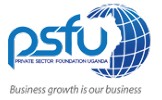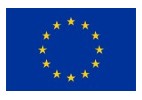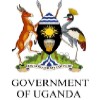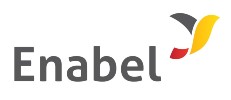Trade between Uganda and the European Union is set to bolster following the success of the second Uganda-European Union Business Forum held on 26th – 27th October 2022.
Prior to the business forum, an SB4U delegation carried out a promotion mission in which five EU capitals were visited, namely Brussels, Paris, Amsterdam, Copenhagen, and Rome. During this mission, the delegation held meetings with Ugandan Ambassadors in Brussels, Paris, Copenhagen, and Rome to brief them about the Forum and to solicit their support in reaching out to key national agencies and TISIs. Meetings with key TISIs (Chambers of Commerce and Industry, Association of Employers, Federation of Industries) as well as with National Development Agencies that promote internationalisation of their companies also took place.
Running under the theme, “Mobilising Quality Investments and Boosting Trade between Uganda and the European Union”, the two-day collaborative engagement sought to heighten economic ties between Uganda and the European Union. It was organised by the EU Delegation to Uganda, in partnership with the Private Sector Foundation Uganda (PSFU), the Uganda Investment Authority (UIA) and the Government of Uganda.
Opening the Forum in Kampala, President Yoweri Museveni urged European investors to exhibit more enthusiasm in adopting Uganda as an investment destination. “Uganda offers generous tax incentives. The national primary interest is not in windfall tax revenue but in the location of services and production operations which contribute to national GDP. There are also commonalities of language, legal systems and social constructs between Uganda and the EU and as a result of these, the EU-Uganda investment flow should encounter significantly fewer integration challenges,” he said.
The 2022 Business Forum followed the inaugural 2020 Business Forum, whose notable outcomes was the establishment of the Sustainable Business for Uganda (SB4U) platform. 1026 physical and 1200 online participants attended the hybrid event over the two days. The 2022 Business Forum attracted participation from Ugandan and European policymakers, public sector agencies, EU Member States Embassies and consulates, private sector trade support institutions, business associations and Chambers of Commerce, captains of industries, financial and non-financial intermediaries, investors, development partners and donor agencies, academia and civil society.
In total, 13 well attended panel discussions and 5 workshops were held to exchange views on challenges and business opportunities in key sectors such as Agriculture & Agri-Business, Industry & Manufacturing, Tourism and Hospitality, Transport & Infrastructures, Energy & Minerals, ICT & Creative Industries but also to offer companies an overview of financing and business development tools available.
Both public and private sector stakeholders renewed their commitment to building stronger Uganda–European Union business, investment, and trade ties in light of recent unprecedented health and economic challenges associated with Covid-19.
EU Ambassador, Mr. Jan Sadek noted that the EU already extends sizeable and broad support towards Uganda and will continue to do so. “The EU is committed to doing more in promoting an understanding of the investment climate in Uganda. This will instil confidence in European businesses and attract them to Uganda. The 2022 UG–EU Business Forum represents the evolution of the EU posture towards the Ugandan market. This new posture promotes greater partnership on equal terms,” he said.
Mr. Stephen Asiimwe, CEO Private Sector Foundation of Uganda (PSFU), highlighted Uganda’s climatic endowments citing that the country is a desirable destination for investment especially in agriculture as well as a rich diversity of iconic features for natural tourist attractions. “PSFU is a 310-member body with close corporate partnerships. It works hand-in-hand with UIA and EPB. PSFU is a readily-accessible (and runs country-wide branches) and is an able and willing collaborator to assist investors to access public procurement frameworks as well as capacity building initiatives,” he said.
“The EU has scaled up its support to Uganda in the areas of access to finance, skills and jobs, governance and accountability, trade and infrastructure. Uganda is EU’s vital link to the other East African countries of Congo, Rwanda and Kenya. This is especially an important role for trade and policy; peace and security; and infrastructure and connectivity. Uganda hosts 1.6 million refugees; this is commendable. The EU will continue to support Uganda to cope with this burden,” added the Executive VP of the European Commission and Commissioner for Trade, Mr Valdis Dombrovskis.
Testimonies from ongoing successful UG – EU business partnerships as well Ugandan business pitches, seeking to attract EU capital and collaborations were fielded. A major highlight was the showcasing of 100 bankable private sector investment projects. They were identified through a national call for investment project and a rigorous selection process. 41 companies were able to pitch their projects during two dedicated sessions having received dedicated training beforehand. A total number of 64 booths from EU partners, Government entities and private sector companies (EU and UG) were set up for exhibition of products and services. For example, the Uganda Coffee Development Authority (UCDA) booth was very successful with over 1500 cups of Ugandan premium coffee served to participants. Other booths included local companies supported through EU-funded projects. The importance of the UG–EU Business Forum has been cemented and will hence become an annual event with its next iteration planned in October, 2023.




